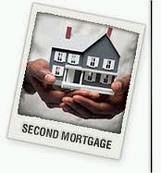 I admit that the title of this blog, “Jacksonville Debtors Stripping Second Mortgages with Chapter 7” is technically inaccurate. An older post addresses how lien stripping and cram-downs actually work. This blog post is going to tell you how we can get an effect similar to “lien stripping” but in a Chapter 7 case instead of a Chapter 13.
I admit that the title of this blog, “Jacksonville Debtors Stripping Second Mortgages with Chapter 7” is technically inaccurate. An older post addresses how lien stripping and cram-downs actually work. This blog post is going to tell you how we can get an effect similar to “lien stripping” but in a Chapter 7 case instead of a Chapter 13.
When a person files Chapter 7 bankruptcy, they have the opportunity to keep their debt on a secured loan in a Chapter 7 as long as their current on payments. This, along with the Florida Constitution allow people to keep their financed homes through a bankruptcy.
The problem most people have these days is that their home is under water and their second mortgage is no longer secured by equity. To make things easier, let’s use the following example:
| Home Value | Mortgage Amount | Secured Amount |
|---|---|---|
| $110,000 | 1st Mortgage $120,000 | $110,000 |
| 2nd Mortgage $80,000 | $0 |
In this example, the debtor owes $120,000 + $80,000 or $200,000 on their home, but the home is now only worth $110,000. This means that the debtor is underwater $90,000. A smart debtor might choose to give up their home in a bankruptcy because it’s horribly underwater. After all, no one in their right mind would knowingly agree to pay $90,000 more than something is worth. Back to the example: If the debtor did surrender the home in bankruptcy, the first mortgage holder would get the whole $110,000 from the sale (first mortgage holders always get paid first) and the second mortgage holder would get $0.
The second mortgage holder knows that they will get zero if the debtor bankrupts as it happens all of the time. They also know that the debtor is likely to go bankrupt if they’re under water because it makes financial sense to do so. What we do is negotiate with the second mortgage holder. We tell them that they can either lose their entire interest in a bankruptcy, or we will offer to settle their lien for a paltry sum. If they accept, the bank can still write off the remaining unpaid amount on their taxes and get cash in the meantime. The debtor can then wait 90 days to avoid the transaction being classified as a “Preferential Payment” and then file a Chapter 7, reaffirming the up to date first mortgage, discharging their other unsecured debts and going on with their life.
If you think you might be a candidate for the “stripping” of a Chapter 7 mortgage contact a Jacksonville Bankruptcy Attorney or call us at (904) 685-1200 for a free consultation.
 Jacksonville Bankruptcy Lawyer Blog
Jacksonville Bankruptcy Lawyer Blog


